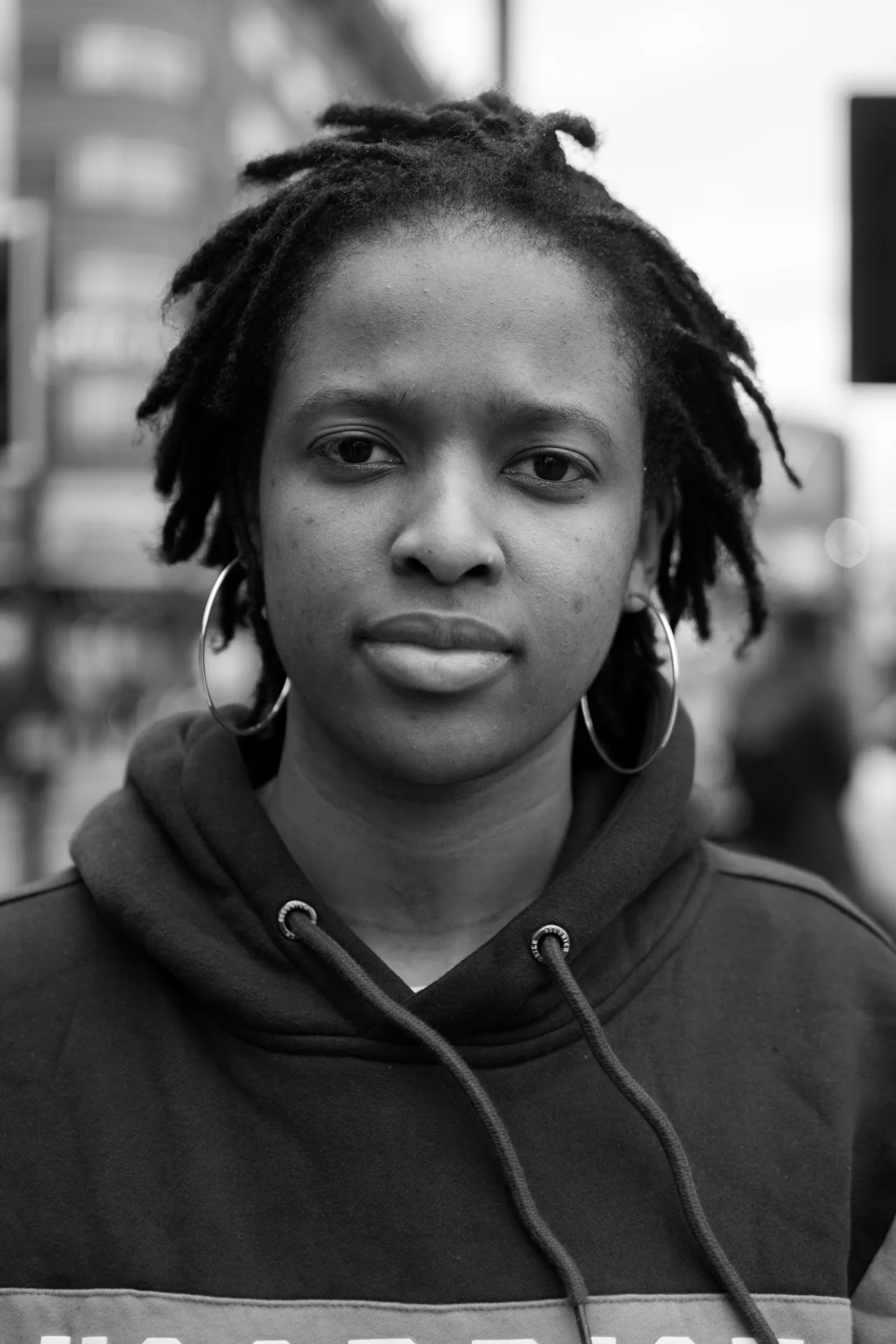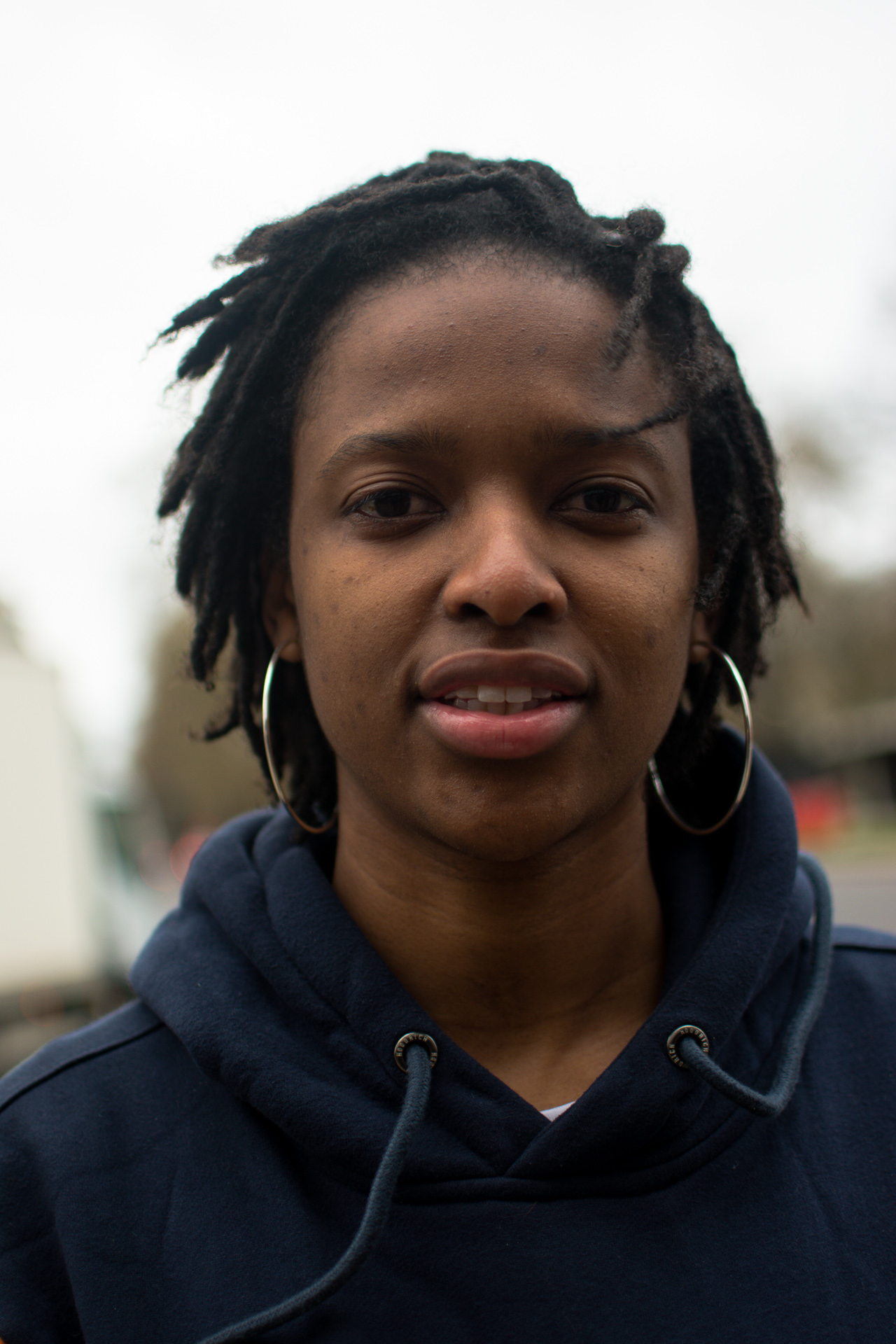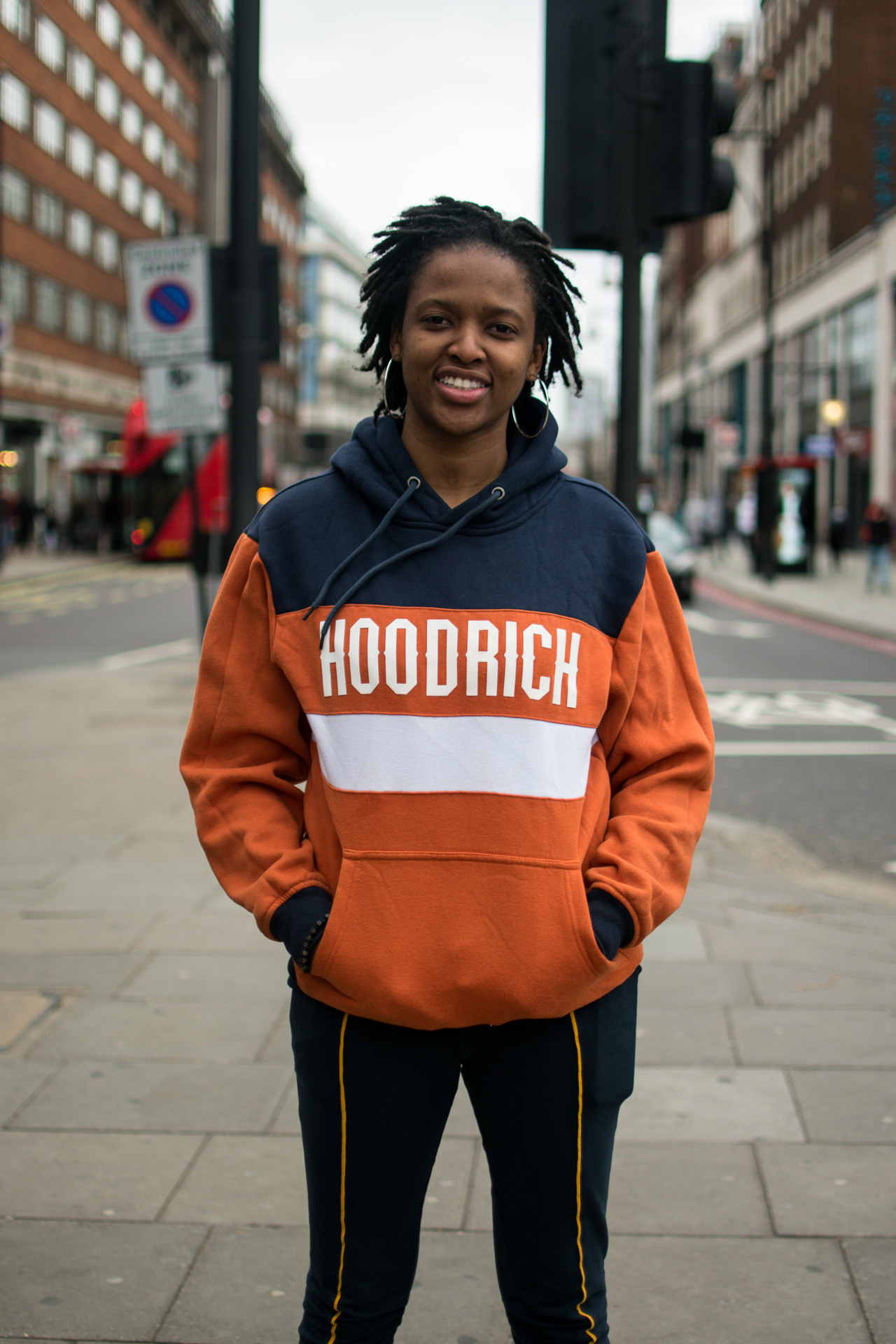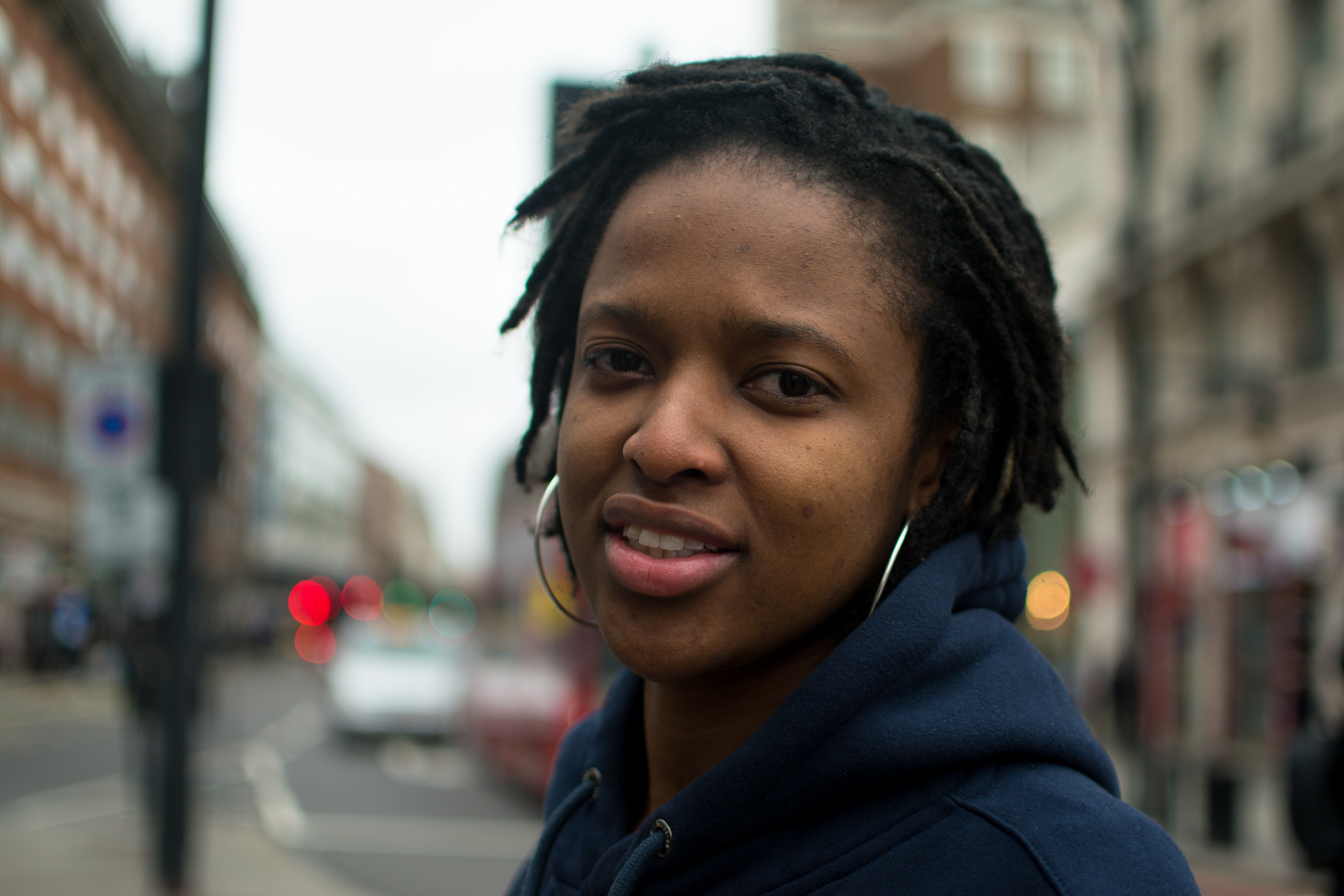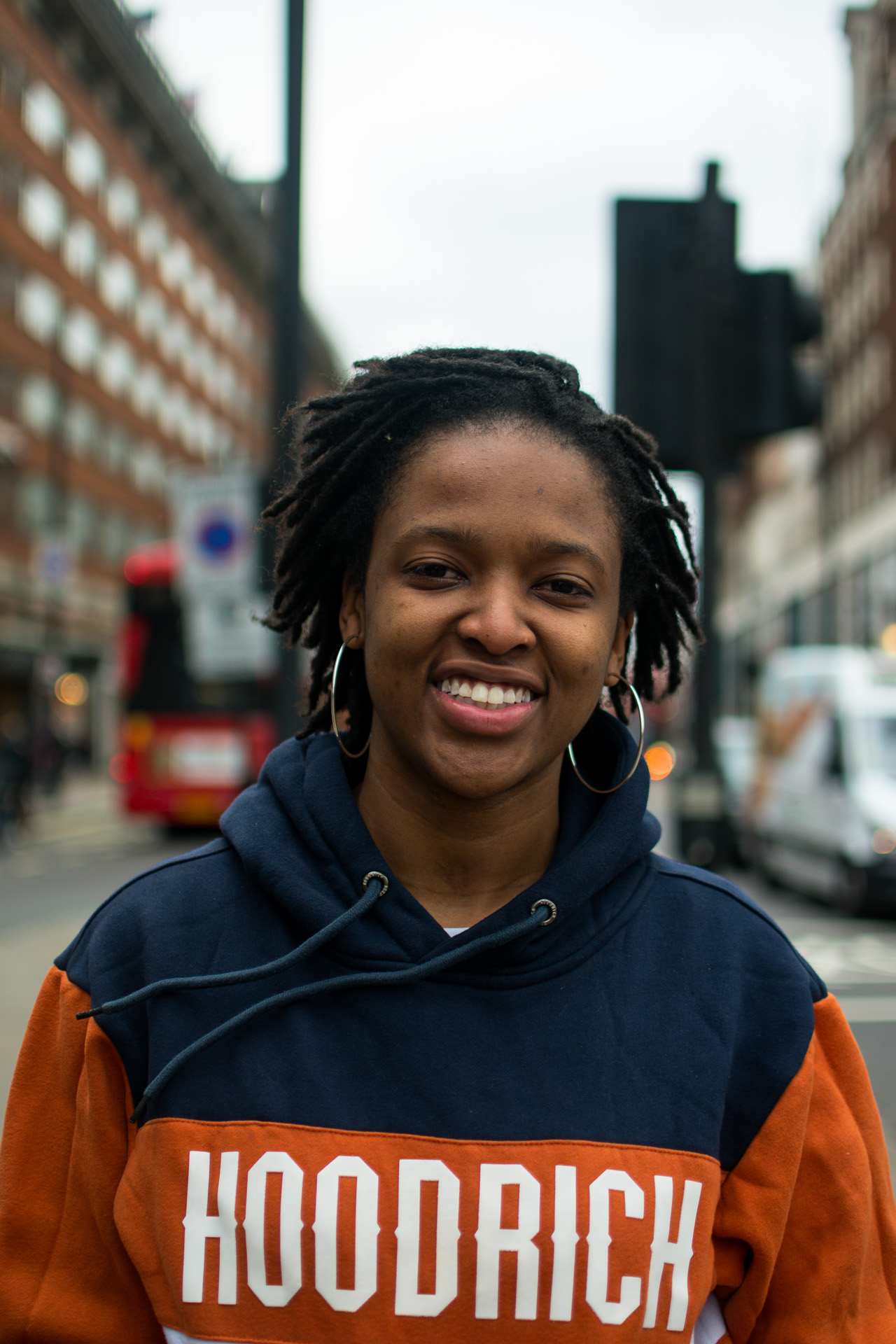Tope
Tope, 26
Nigerian ethnicity: Yoruba
City/County grew up in: London
City/County of residence: Kent
*audio below
Describe your heritage
I am Black British Nigerian, born to a dad who was born in Nigeria and raised in Nigeria, and my mum was born here, stayed here till she was 5, and went back to Nigeria. [She] came back here when she was 21, I think. So I’m a good mix and a blend. All Yoruba, pure Yoruba, shout out to all the Yorubas!
What to you, makes you Black British Nigerian? How do you define it?
It’s weird, I feel a deep sense of connection to being Black, and a deep sense of connection to being Nigerian, but to British, it’s a bit somehow. Especially with all this Brexit-Brexit, and you’re seeing all these racial undertones coming out. I feel like I identify more with being a Londoner and loving and appreciating a lot of things about the London culture and I guess other places outside of London, maybe like Birmingham and Manchester, like more of the major cities, than I do Britain as a whole.
I think the most British thing about me is the fact that I eat fish and chips every now and then, and that’s it. But I think it’s a mixture of when I get home, I feel a great sense of being Nigerian, just in terms of the language, the food, the value system as well, and I think there’s more of a wrestle between me and my mum to kind of find this middle ground. So a lot of the time my mum will be like “if we were in Nigeria, you couldn’t do x, y and z” and I’m having to remind her “Yeah but we’re very much in the UK”. So I sense that kind of wrestle between two different cultures in one sense, but I don’t think there’s a clear-cut definition. It feels like it’s a very big mix and blend of everything great and juicy.
What challenges do you/have you faced that relate to your identity as a Black British Nigerian?
I feel more so in my later teens I felt the sense of being displaced, actually not having anywhere that’s home. So as much as I feel like London is my home, again with all this Brexit-Brexit you start to realise “Raa, is it really my home?”. Even things like looking at Shamima Begum and just how quickly they were able to revoke her citizenship, it makes you feel like “Do I actually have a place?”. I remember when I went back to Nigeria in 2015 for the first time since I was young, and I go there knowing that I’m Nigerian, but then I get there feeling a sense of I’m actually not Nigerian at all because I feel like I didn’t understand the culture as much as I wanted to. It felt like a whole different world, a whole different value system a whole different way of living that in all honesty I just wasn’t used to. So there’s that challenge of actually not knowing where you fit in. When I’m in Nigeria I’m very much British, when I’m here, my title is Nigerian.
I remember when I was at work, my old workplace, and one of my old colleagues must have said to me “Oh you’re engaged” I said “Yeah”. He said “Oh is it someone back home?” And I was like “….”. So I said to him “Back home in Kent?”, and he was like “Nah, back home back home”. And the undertone was like this is not your home; your home is wherever your blackness comes from, and I walked away from that thinking this guy is really dumb. But there’s just always that sense in terms of people’s microaggressions. When you’re speaking to [White] British people, you do get that sense of ‘you’re actually not from here’ and so it’s a bit difficult just being ‘homeless’, I guess.
What do you love about being Black British Nigerian?
If I’m honest I feel like I get the best of 3 different worlds. With the blackness I feel like I can identify with Black people across the globe. So not just Black people here, but Black people in America (for example) because a lot of our culture and entertainment comes from America, so we’re very much aware of their plight or the things that they go through there; we’re very much aware of their lingo and their slang and I feel like that’s something that they’re not that aware of in reverse. African Americas are quite ignorant when it comes to what it’s like to be Black British.
Again with the British culture, one of the things I love is music for example. There’s this crossover – take NSG, their track that’s quite big now, ‘Options’, I listen to that and I hear the Nigerianess of it, the Afrobeatness of it. But at the same time, it’s very very London, and I think it’s amazing to see little white girls (for example), dancing to an NSG [track], because I feel that’s very much my culture. So that’s one of the things that I love – just seeing the way our culture is starting to transcend just Nigeria or Ghana or West Africa. It’s actually starting to be appreciated across the globe. And again I feel like [being] Nigerian is the best thing I could have come to earth being! I mean I appreciate other cultures but…man our banter is too sweet, so what can we do? Some of us are born privileged!
Do you think this country values your identity?
I don’t think they appreciate it until they can monetise it. Until it’s something that is of profit to them, something that they can gain from it, I just don’t think it’s something people care about. Again, I actually work in the music industry, and hearing the way people talk about for example, Burna Boy, his big track ‘Ye’; the way I connect to that as a Nigerian, is very different from the way they connect to it, and I remember one of my colleagues saying “Ah he’s just speaking jibberish”. My whole heart was like “Yeah but no”. It’s one thing for you not to understand, but ask questions. For you to just to label it as jibberish, I kind of felt like this is a really big track, but the only reason why people are appreciating it is because it’s the wave at the moment.
For example, I saw last year a lot of people were in Ghana, and a lot of people are starting to go back to West Africa in particular, and I feel two ways about it. At one point I’m like it plugs money into the economy, but at the same time I feel like you people only care because you’re getting something out of it. So I don’t necessarily feel this country appreciates it until they can actually make money from it, unfortunately.
What does the future look like for Black British Nigerians - what are your hopes for us?
I think the future is bright. I think a lot of us are starting to appreciate our culture a lot more. I know for a lot of us our parents came here so we can have a better ‘education’, so that we can have a ‘better start at life’, and I think a lot of us have taken advantage of that and the education we’ve received. Particularly when I look at my friendship circles, a lot of them are making money that their parents have probably never seen in their whole lifetime, so that’s encouraging [I think] for future generations; that our story won’t always be coming from poverty, that we’ll have this middle class.
Being in the working world I’ve seen nepotism is a really big thing, and for the longest time it’s only been afforded to little white kids, and so I’m hoping that in the future it will mean a lot more for our younger generations, so children hopefully will be able to get work experience in particular places simply because of my affiliations. And also I feel that because a lot of us are feeling this displacement to some extent, we’re trying to learn more about our culture and trying to learn more about Nigeria, and we’re starting to go back a lot more. So I’m hoping that does a lot more for the Nigerian economy, I hope that means corruption wont be so much of a thing lets say in like 20 years. I’m hoping that NEPA will stop taking light! I’m hoping that we’ll have constant light at some point. So yeah, when I look at the landscape of BBNs, I think of what it can do here, but more so I think of what we can actually do back home and what we can plug into that economy, and hopefully it will just make Nigeria a better place.
